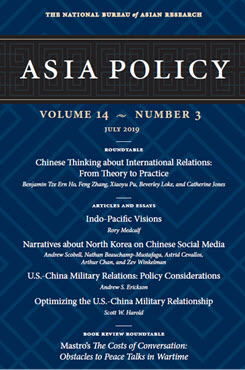The Xi Jinping Doctrine of China's International Relations
This essay explores China’s thinking about international relations from the perspective of the Xi Jinping doctrine and considers the implications for China’s engagement with the international order.
Executive Summary
MAIN ARGUMENT
The Xi Jinping doctrine, conceived as the collective body of thought embodied in Xi’s remarks, writings, and instructions, offers an entry to the deep currents of China’s thinking about international relations. The surface-level frame of reference guiding this doctrine is “the mission of the Chinese Communist Party.” In advancing this mission, Xi and the party draw on three deeper cognitive frames. The first of these—”national rejuvenation”—is focused on restoring China’s wealth and power. The second and third deeper frames of reference—”global community” and “Chinese contribution”—aim to foster common interests and contribute to global governance, respectively. The Xi Jinping doctrine thus throws into sharp relief the challenges of China’s foreign relations in the 21st century.
POLICY IMPLICATIONS
- The “national rejuvenation” frame of reference, by aiming to restore China’s international status to an as yet unspecified rightful position, rubs up against the established dominance of the West since the dawn of the modern era.
- The “global community” frame of reference, by promoting mutually beneficial cooperation, will help smooth China’s international engagement.
- The “Chinese contribution” frame of reference, though encouraging in its emphasis on international peace and development, is unsettling, especially for Western elites, because of its potential to morph into the promotion of a Chinese model of international relations.
Feng Zheng is a Senior Lecturer in the Department of International Relations at the Australian National University’s Coral Bell School of Asia Pacific Affairs and Adjunct Professor at the National Institute for South China Sea Studies in China. He is the author of Chinese Hegemony: Grand Strategy and International Institutions in East Asian History (2015).
About Asia Policy
Asia Policy is a peer-reviewed scholarly journal presenting policy-relevant academic research on the Asia-Pacific that draws clear and concise conclusions useful to today’s policymakers. Asia Policy is published quarterly in January, April, July, and October and accepts submissions on a rolling basis. Learn more


